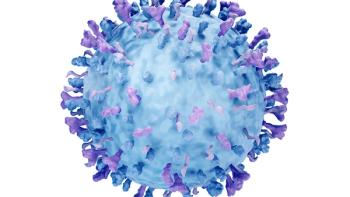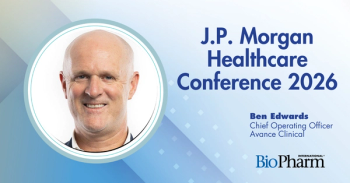
- BioPharm International-06-01-2005
- Volume 18
- Issue 6
The CRO Advantage: Outsource Clinical Trials to Launch Biotech Development Success
Less than 35 percent of all biotech companies have sufficient finances to survive beyond one year.
With the exponential growth in biotechnology product development, there is a corresponding increase in the demand for experience and expertise in the implementation and conduct of biotechnology clinical trials. Small- and medium-sized biotechnology companies continue to look for ways to increase return on investment and potential earnings. Many of these companies have products in their pipelines that are indicated for rare and orphan diseases, prompting the need to reduce their clinical development time and employ aggressive strategic planning. This in turn will fulfill their promise of being independent, lean, and more efficient in drug development.1
Wendy Porter
Biotech companies have proven they can deliver innovative drugs. Several commercially successful biotech drugs have reached the market in the past three years. Of the 21 new molecular entities approved by FDA in 2003, six were developed through biotechnology techniques, more than any previous year.2 There are currently 370 drugs in clinical trials from biotechnology companies.3 Despite these figures, the drug development process is exceptionally risky for biotech companies. Less than 35 percent of all biotech companies have sufficient finances to survive beyond one year. Those who do face even more daunting statistics — only one out of five drugs entering Phase I trials gains market approval. Of the approved, only 30 percent recoup development costs.4
Biotech companies face big risks in getting their products to market. And with such limited resources, mistakes become costly. At all stages of growth, biotech companies need three things to succeed: a robust technology platform, capital, and a successful clinical development program. With the first and second in place, the final success of a drug lies in developing a safe and efficacious biological product for human use as demonstrated through clinical trials, which test the safety and efficacy of that drug in a clinical setting. Hitting a home run with successful clinical trials is key. Planning the optimum clinical development strategy and implementing that strategy correctly can make all the difference. That's where contract research organizations (CROs) can become valuable partners for biotech companies.
Partnering with or outsourcing to a qualified CRO experienced in biotech drug development can provide a strategic benefit — realized as a time and cost savings in the development and approval process of a new therapeutic agent or device. The process of conducting clinical trials with biological products is essentially similar to that for any pharmaceutical product. However, trials with these products present different challenges in terms of trial design, patient recruitment, and supplies. Limited resources and a science-versus-management focus present additional challenges. This article addresses issues that should be considered when outsourcing biotech drug development to a CRO.
WHY OUTSOURCE?
The current regulatory environment is becoming stricter, making it more difficult and requiring more resources to develop new drugs, biologics, and devices. Drug development, for example, requires expertise in broad scientific disciplines: preclinical, clinical, ancillary clinical (chemistry, packaging, manufacturing, etc.), project management, and regulatory affairs. All of the required functions must be coordinated to minimize start-up time, effectively utilize time of operations, maximize efficiency, and support the filing of an appropriate regulatory submission. The end result: to produce a high-quality product in record time and within budget.
The primary reason biotech companies outsource clinical trials to CROs is that they have limited internal resources to manage these functions. Often, small- to medium-sized biotech companies are unable to employ experts in all the required clinical development areas. Experience earned by veteran drug developers is a valuable asset to any new program or biotech company. In the end, the clinical development team for a biotech company will require the efforts of a biostatistician, data managers, a scientific writer, a medical affairs expert, and a project manager. This team comprises senior members from various departments. An expedient route to developing this resource is to outsource to a CRO partner with biotech drug development expertise.
Figure 1. Biotech Products Entering Late-Stage Trials
WHAT TO LOOK FOR IN A CRO PARTNER
Aside from the usual criteria for selecting a CRO, finding an outsourcing partner for biologic product development requires some unique and distinct features. Included here are some criteria to establish when choosing a CRO to implement an effective biotech clinical development program.
The CRO should understand the issue of limited resources and utilize its assets to address this concern.
For emerging biotech firms, issues of financing can hinder the success of a drug. Choosing the right CRO who understands sound decision-making is critical to saving time and money. Clinical proof-of-concept to be achieved rapidly is a key goal. Look for a CRO who can design proof-of-concept studies that demonstrate efficacy early on. The CRO should also have a record of reproducibility for developing clinical proof-of-concept in record time. This allows a small biotech to use this information (if it is positive) to help a drug candidate attract either venture-capital revenue or a development partner. Alternatively, if the results are not positive, they can help a biotech company refocus its efforts in an alternative direction, saving considerable time and money.
When a biotech company partners or outsources with a CRO, one of its main goals should be to gain knowledge from the alliance that can be applied to drug development. CROs who have experience running clinical trials with biologics usually have skills that the biotech company lacks, and vice versa. The CRO can offer an understanding of how to create a medicine, while the biotech company can offer other skills such as a different philosophy of chemical design, a different approach to choosing targets, or an alternative method of assessing the targets that are more likely to succeed. When combined with the CRO's skills, these qualities are likely to make each party more successful, leading to a successful clinical trial program.
The CRO should have experience working with novel, complex therapies — especially products in new, untested drug classes.
The new frontiers of medicine reside in research that biotech companies are conducting with large molecules and macro-molecules. Many pharmaceutical companies are reevaluating the potential of biotech drugs and are focusing internal initiatives in this direction. For example, Eli Lilly has redirected its focus in drug development from traditional small molecule pharmaceuticals to biologics.
Unlike traditional new molecular entities (NMEs), biological products often require novel trial designs. This is because experience with biologics is very young versus small molecules for which decades of clinical and regulatory experience exists. Regulatory guidance and experience with biotech product development helps. However, biotech drug development will always be challenging because development is rarely repeated. It is important to find a CRO with an established record of working with regulatory agencies on behalf of novel trial designs, and is flexible and innovative in its development approach.
The process of discovering when to terminate research seems to be different for biologics than for chemical entities. Biologics are less likely than chemical compounds to be eliminated in Phase I and II testing, but they are more likely to be discontinued at Phase III.5 A CRO with experience navigating these clinical waters is key to developing a successful product submission.
The CRO should have experience in implementing demanding fast-track and accelerated approval programs.
FDA is predisposed to accelerating the approval for drugs that fulfill unmet medical needs such as cancer and viral diseases. Biotech companies developing products that fall into these two therapeutic categories, including oncology, infectious diseases, autoimmune, HIV/AIDS, and central nervous system (neurodegenerative diseases), should consider partnering with CROs who can maneuver the complex trial implementation and conduct that accelerated approval processes present. With more biotech products entering late-stage trials, Ernst and Young analysts have said, "Biotech companies no longer are the minor-league managers of drug development, passing off potential star products to big pharma for a license fee and single-digit royalties, then returning to the laboratory to make more discoveries."6 They are now collaborating in co-development deals with big pharma companies where they often take the lead in development while the pharma company provides the sales and marketing efforts to ensure an equitable share of the profits. With biotech companies taking the lead in terms of development, a key issue they face is outsourcing to the appropriate CRO if they do not have the resources to carry out the clinical trial programs internally.
The CRO should facilitate a smooth integration of specialty vendors and service providers into the development team.
Communication is key to an effective partnership as well as to the success of a clinical development program. A CRO who works with a biotech company as an extension of that company's team will ensure the success of the collaboration. This model lends itself to consensus development.
Frequent contact is essential between the CRO and the biotech company, not only to ensure that study protocols are adhered to and targets are met, but also to help the CRO if a problem arises. A CRO must have excellent communication systems in place with its personnel (including top management) being easily accessible and engaging. It should hold regular meetings with its partners — including third-party partners such as labs — and use secure email connections to maintain contact at other times. Meetings should be reinforced with regularly scheduled reports and other written documentation that are consistently provided to all parties involved (e.g., the biotech sponsor, third-party partners, contractors, etc.). Apart from this, the maintenance of detailed documentation is necessary to comply with Good Clinical Practices (GCPs) and other regulatory agency requirements. One key component of an excellent communication system is to have an experienced project manager from the CRO become fully engaged — acting almost as an internal team member of the biotech company. This ensures an efficient, seamless integration of the clinical team into the biotech company.
The CRO should share your corporate culture and values.
Innovation is the key value driver among many biotech companies. Finding a CRO who shares the same value is where successful partnerships start.
Many biotech companies tend to be small. Working with a CRO who operates as a small company may result in higher quality implementation and management of clinical studies. A CRO should have a service-oriented philosophy and a determination to do whatever is necessary to achieve the sponsor's objectives.
The CRO should understand the challenges and demands that new targeted biological therapies present for clinical trials.
While new technologies have lead to significant breakthroughs at the front-end of the drug development process, the same has not happened at the drug trial stage. A recent report by FDA states, "Not enough applied scientific work has been done in creating new tools to get fundamentally better answers about how the safety and effectiveness of new products can be demonstrated, in a faster timeframe, with more certainty, and at lower costs." 7 To address this problem, FDA outlined in its March report a goal of developing new, publicly available scientific tools such as assays, standards, computer modeling techniques, biomarkers, and new clinical trial endpoints designed to make the drug development and testing processes more effective. A potential CRO partner should be aware of these tools and have experience collaborating with third parties who use them, as well as have experience with new trial endpoints.
It is important for the CRO partner to help the biotech company select appropriate patients for targeted therapies. This leads to an establishment of key measurable clinical endpoints and more robust trials. For example, an oncology trial should be conducted in patients whose tumors are turning on a target or in certain tumor-specific cancer patients, in which the target is driving the malignancy.
Adopting new biomarkers or surrogate endpoints for effectiveness can speed up clinical development. For example, the adoption of CD4 counts and subsequent measures of viral load as surrogate markers for anti-HIV drug approvals, allows for the rapid clinical trial program completion and approval of life-extending antiviral drugs, with time from human studies to market being a short 3.5 years versus the average of 8 to 12 years.
A biotech company will increase its efficiency in the overall trial process — saving money and time — by finding a CRO partner who is ahead of the curve in understanding some of the potential new and emerging technologies (e.g., pharmacogenomics, proteomics, computer modeling, etc.) to incorporate into biotech trials, while being cognizant of the regulatory issues related to biotechnology. Narrowing the focus of biotech clinical trials will no doubt lead to improved quality and success.
Wendy Porter is president of Endpoint Research, 2595 Skymark Avenue, Suite 210, Mississauga, Ontario, L4W 4L5, 416.626.0299, fax 416.626.2063.
Susan Krivacic is founder and consultant of PBG Consulting, LLC, 3571 Far West Blvd., #76, Austin, Texas 78731, 512.795.0055, fax 512.795.2344.
REFERENCES
1. Voisin, Emmanuelle and Schroeder, Manfred. Anticipating New Regulatory Hurdles.
Applied Clinical Trials
. May 2004. pg. 56.
2. Engel, Styli and King, John. Pipeline Gaps. Can Biotech Fill Them? R&D Directions. July/August 2004. pg. 42.
3. Ernst & Young's 18th Biotechnology Industry Annual Report. 2004.
4. Raynovich, Rob. Investment Opportunities in Biotech Stocks, A Primer on the Biotechnology Sector, Part I. Genetic Engineering News. Nov. 15, 2004. Vol. 24, Number 20, pg. 26.
5. Lawrence, Stacy. Priming the Pipeline. ACUMEN. January/February 2004. Vol. II, Number 1, pg. 20.
6. Engel, Styli and King, John. Pipeline Gaps. Can Biotech Fill Them? R&D Directions. July/August 2004. pg. 43.
7. U.S. Food and Drug Administration. Innovation or Stagnation. Available at: http://
Articles in this issue
over 20 years ago
StreetTalk: Send Lawyers, Guns, and Money: My Patent Has Hit The Fanover 20 years ago
The Susceptibility of CAPA to Subjective Biasover 20 years ago
Book Review: Inside the FDAover 20 years ago
Centralizing Compliance for Competitive Advantageover 20 years ago
Chromatographic Purification of MAbs with Non-Affinity Supportsover 20 years ago
The Art and Process of Successful In-LicensingNewsletter
Stay at the forefront of biopharmaceutical innovation—subscribe to BioPharm International for expert insights on drug development, manufacturing, compliance, and more.




